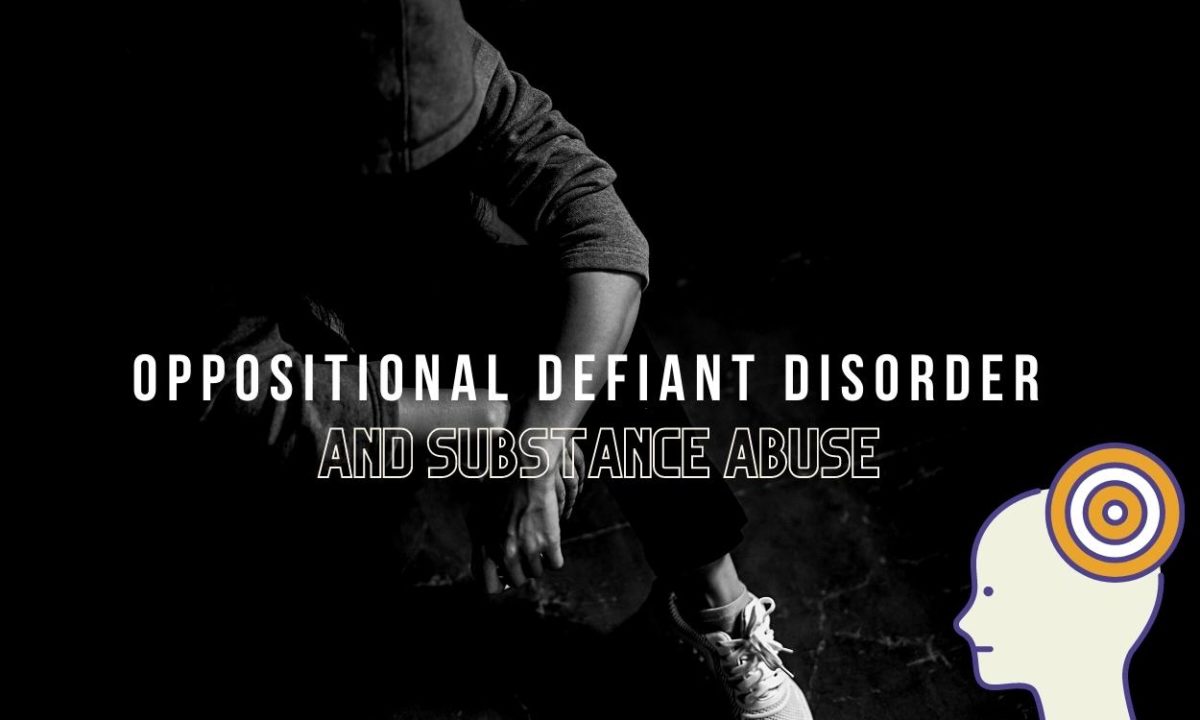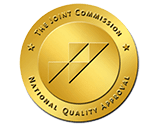Having a mental or behavioral disorder doesn’t automatically mean dealing with a substance use disorder. However, other co-occurring mental health disorders can raise the risk of addiction. Oppositional defiant disorder is mental health and behavioral disorder that may create a higher risk of substance abuse and dependence.
What is Oppositional Defiant Disorder?
Oppositional defiant disorder, or ODD, is a mental health disorder seen in children and teens. Persistent irritable mood, defiance, vindictiveness, and anger are symptomatic of ODD.
The condition includes ongoing defiance of authority figures, often for no apparent reason.
There can be challenges in recognizing whether a child or teen is just highly emotional or strong-willed, or has ODD. Throughout a child’s development, it’s common to display oppositional behaviors at different points. The persistence of symptoms can characterize a disorder versus normal behaviors in kids and teenagers.
The signs of a disorder related to oppositional behavior usually begin during preschool but sometimes later. The signs are almost always there before a child reaches their teen years. There can be significant impairment at school, in family, and in social activities.
ODD can fall into the larger category of disruptive behavior and mood disorders. There are many similarities with disruptive mood dysregulation disorder, which likely represents a genetic overlap.
The Diagnostic and Statistical Manual of Mental Disorders or DSM-5, which the American Psychiatric Association publishes, outlines diagnostic criteria based on current insight.
The behavioral and emotional defiant disorder symptoms must last for at least six months for a diagnosis. The persistent pattern is an important part of diagnosing many psychiatric conditions. ODD symptoms include:
- Being angry or losing their temper easily
- Irritable mood
- Touchy or easily annoyed by other people
- Aggressive behaviors
- Frequent temper tantrums
- Constant questioning of rules
- Often angry or resentful
- Argumentative with adults and people in authority
- Active defiance or refusing to comply with rules or requests from authority figures (defiant behaviors)
- Tries to deliberately upset people or annoy them
- Blames other people for their own mistakes or negative behaviors
- Spiteful and vindictive or hostile behavior
- Generally problematic behavior toward authority figures in particular
There is an ODD spectrum regarding the severity of symptoms and the pervasiveness. The signs and symptoms can also change depending on a child’s developmental stage.
- Mild ODD indicates symptoms occur in a single setting. For example, the symptoms might only happen at home or school, but not both.
- Moderate symptoms occur in at least two locations.
- For a severe diagnosis, symptoms occur in three or more settings.
- Sometimes, mental illness symptoms will start only at home in children and begin to show in other settings, like at school or in interactions with friends.
Determining if a child has the disorder can be challenging because nearly all kids will occasionally have some symptoms. Disruptive children or defiant children isn’t an inherent disorder indicator.
In children with conduct disorder symptoms, the signs will occur much more frequently and rarely subside. The behavioral issues arise for at least six months and lead to problems at school or in relationships.
There may be overlaps with anxiety disorders and attention-deficit/hyperactivity disorder symptoms. Some symptoms can also be similar to bipolar disorder or antisocial personality disorder, but not always.
A child psychiatrist or adolescent psychiatrist should be able to distinguish between ODD symptoms and normative behavior, as well as the symptoms of ODD and other mental health disorders even when they’re similar to each other.
What Causes Oppositional Defiant Disorder?
The exact causes of this behavioral and psychiatric disorder aren’t entirely known, as with most other mental disorders. Researchers usually think a combination of environmental and developmental factors plays a role in ODD symptoms.
Developmental factors might mean a child has underlying challenges that make them quick to become angry and slow to calm down.
- Learned or social factors could include a child developing high levels of pessimism and negativity because an authority figure or parent used excessive punishment.
- Aggressive behaviors modeled by a parent can play a role in an ODD diagnosis and lead to similar aggression in children.
- Environmental factors can occur when a child associates negative reinforcement and punishment with getting more attention.
- Permissive parenting or inconsistent discipline can contribute to this disorder in children, as can a strong will in a child because of intrinsic characteristics of personality and biological factors.
Oppositional Defiant Disorder Treatment
To diagnose any disorders in children, there should be a psychological evaluation by a professional who specializes in working with young populations.
The evaluation may include medical history, family history, and discussing specific symptoms in line with ODD criteria.
Treatment most often includes family-based interventions and different types of cognitive behavior therapy. The child and the parents may also participate in behavioral training and psychotherapy.
Oppositional defiant disorder treatment often lasts for several months or more, but medications and pharmacological management aren’t generally used unless a child has a co-existing disorder.
Elements of multidimensional treatment and behavioral therapy for ODD may include:
- Parent training programs—mental health professionals can help parents develop parenting skills to create a consistent, positive, and less frustrating environment. These can be protective factors against the possible risk factors of ODD and other mental health conditions. Parent management training is often the first-line treatment for bad behavior and ODD in children.
- Parent-child interaction therapy—PCIT includes coaching from a therapist while a parent interacts with their child. Parents learn strategies for positive reinforcement of their child’s behavior to replace negative interactions. This is sometimes also known as parent management training.
- Individual therapy and family therapy—children might participate individual interventions in therapy to help express feelings and anger in healthier ways. Family therapy helps with communication, and improving family interactions overall can help significantly when a child has an ODD diagnosis. Some treatment plans may include peer group therapy also.
- Social skills and problem-solving skills—some children with ODD benefit from social skills training to learn how to be more flexible and interact with their peers more effectively. A child can work on other skills in therapy, including emotional regulation, positive communication skills, and impulse control.
If your child has ODD, there are things you can do at home, on your own to help too. For example, you can focus on recognizing your child’s positive behaviors, and you can model the behavior you want to see from your child.
You can set limits and routines, assign household chores to set expectations, and you can all work together as a household.
If you’re a parent of a younger child and you believe you see signs of ODD, speak to a mental healthcare provider. They can help go over your child’s history and make an accurate diagnosis based on ongoing patterns. That can allow you to begin early interventions and treatment like parental management training and individual behavioral therapy.
Those interventions and ODD treatment are important because untreated mental health conditions are more likely to lead to drug or alcohol abuse and addiction.
There are also treatment options for adolescents with conduct disorder symptoms, and it’s never too late to seek these interventions from a qualified mental health professional.

Oppositional Defiant Disorder and Addiction
While treatment can benefit a child with ODD a great deal and does tend to be effective, particularly when it begins early on, untreated ODD can lead to complications and other symptoms of mental illnesses.
The likelihood of a child experiencing complications or problems later due to ODD depends on the individual circumstances and psychological intervention.
- ODD behavior in children can lead to relationships and peer rejection, and isolation is a risk factor for mental health complications.
- A defiant child may be at greater risk for substance abuse if they have other co-occurring disorders such as a learning disability or a depressive disorder and ODD diagnosis.
- The diagnosis can evolve from ODD to a conduct disorder without treatment also.
- People with conduct disorders are more likely to destroy property and engage in law-breaking behaviors. They may show other antisocial behavior symptoms.
- A conduct disorder can include a range of deviant behavior or delinquent behavior and maladaptive aggression.
A person with ODD will not automatically develop a conduct disorder, but treatment early on is critical.
Young people who use drugs are four times more likely to have a disruptive behavior disorder compared to those who don’t use drugs. When a child or adolescent has a disruptive behavior disorder, they’re six times more likely to have a substance use disorder.
We know that disruptive behavior disorders tend to correlate with higher rates of drug and alcohol use. The involvement with drugs and alcohol also tends to start earlier when children have a disruptive behavior disorder.
If a young person is diagnosed with a substance use disorder and also oppositional defiant disorder or something similar, they need comprehensive treatment for both. These co-occurring diagnoses influence each other, so a comprehensive approach is required. The approach might include psychosocial therapies and training on positive parenting and strategic family therapy.
Please call 866-681-0927 and get in touch with a care coordinator at Silver Lining Recovery if you’d like to learn about outpatient treatment for addiction and mental health disorders in Southern California.







